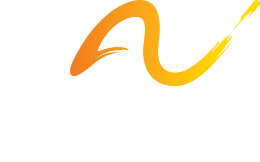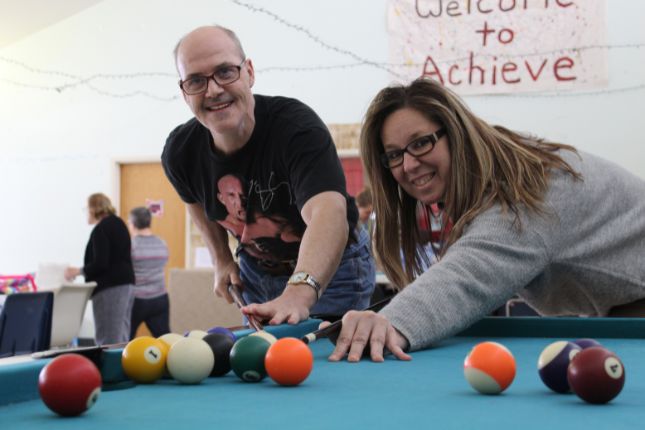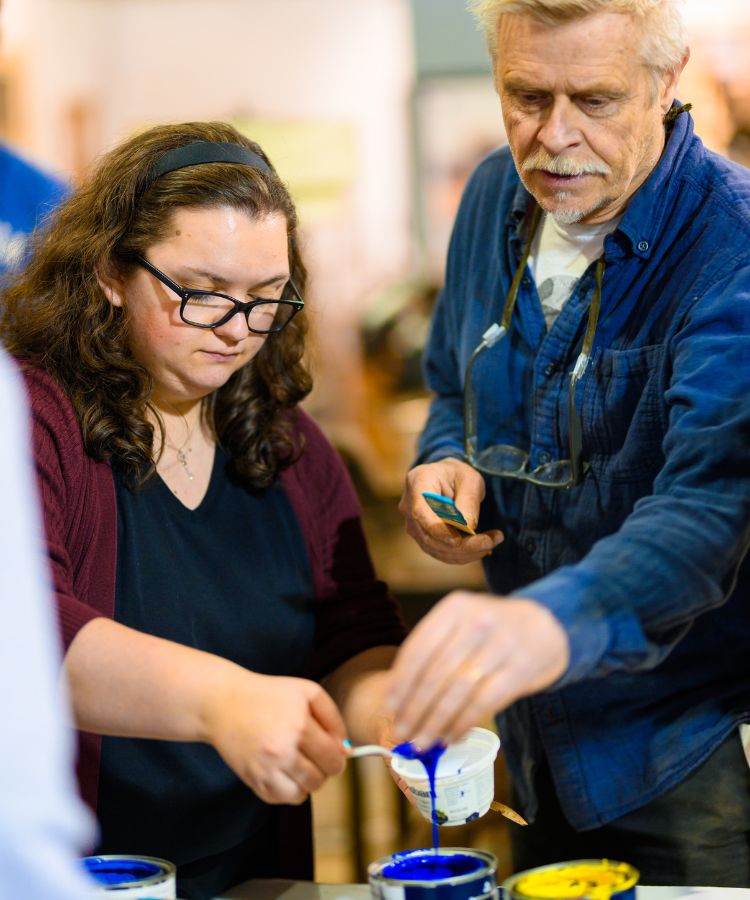Issue:
Barriers to equitable and accessible supports and services for people with intellectual and developmental disabilities (I/DD) has historically contributed to unnecessary hurdles. Having basic needs met such as medical, behavioral and oral health, transportation, where to live, where to work, and level of available supports remains a constant struggle.
Access to care across multiple medical disciplines finally became a possibility through teleservices and many of those flexibilities remain in place due to their inclusion in FY22 and FY23 NYS enacted budget. We have witnessed efficacy with this technology and support additional flexibilities and uses of technology. Primary among these flexibilities is allowing providers from out of state to participate in teleservice. Particularly in rural areas, access transportation and the most appropriate medical care and professionals remain a challenge.
Reliable transportation is a key to independence, opportunity and a full life within one’s community. Unfortunately, due to the workforce crisis, there are too few staff available to support this service. There is currently insufficient opportunities and access to transportation infrastructure to ensure people are able to live the life they choose.
Thousands of New York state citizens with I/DD are waiting for placement in a community residential setting, and many are in immediate need. The state has not provided an adequate way for families to plan for the future when providing care at home becomes difficult or impossible. People with I/DD and their families face an onerous placement process without a clear understanding of that process or the extent of their wait. However, while thousands await suitable placements, many residential vacancies go unfilled.
Vacancies within certified residential settings have grown in recent years because of an administrative requirement to fill the opening with someone from the “Emergency Need” placement category. Often, the care needs and behaviors of some people are incompatible with the home in which the vacancy exists, which prevents optimal person-centered care. In these cases, the vacancy remains unfilled, despite the fact it may be a suitable placement for people from the Current Need or Substantial Need categories. This onerous residential placement process promotes unnecessary long-term vacancies in the voluntary sector, and often causes significant and unsustainable deficits for these organizations.
Offering housing almost solely on an emergency basis makes it nearly impossible to guarantee placements will be found in the most appropriate, least restrictive home environment. These restrictions also lessen the person’s opportunity for choice in their own housing.
While not every person requires certified residential placements in their community, the array of supports and services needs to be maintained and expanded where necessary to ensure that people achieve as much independence as they need and would like.
Self-Direction is the practice of empowering people with developmental disabilities to manage the supports and services they receive. Under a Self-Direction model, the person with developmental disabilities chooses the mix of supports and services that work best for them, decides how and when those services are provided, and selects the staff and/or organizations that provide them.
Under the current Self-Direction model, families and people who seek access must navigate upwards of 10 to 15 service types, all governed by differing regulations and guidelines, and requiring different forms and templates. Providers spend a significant amount of time developing, obtaining, reviewing, and correcting required documents, including mileage reimbursements, timesheets, vouchers, vendor and contactor invoices, monthly notes, and expenditure reports. It is unreasonable to expect families to understand this complex system, and its administration is a drain on provider resources. This complexity adds a significant barrier towards independence.
Along with the pursuit of where and how to live, even though many people with I/DD want to work and have the skills to do so, there are limited employment opportunities available to them. As a result, the majority of adults with I/DD are either unemployed or underemployed. Although there has been progress made in recent years to modernize the Preferred Source Program, there still remains lacking opportunities for people with I/DD who want to work.
Call to Action: Make Equity and Access for Activities of Daily Life a Reality for People with I/DD!
The Arc New York will work to:
- Seek additional service model innovations to include teleservices on par with current programs and rate conventions
- Ensure rates for teleservices are based on outcomes, rather than mode of delivery
- Advocate for adequate and specialized transportation for people with intellectual and developmental disabilities
- Ensure that bonuses and workforce investments include frontline transportation and direct care employees
- Support 3142 (Mannion) introduced in the 2021-22 legislative session, which requires the Office for People with Developmental Disabilities (OPWDD) to develop and maintain a community residence opportunities (CRO) waitlist and publish in a transparent manner
- Reform the Certified Residential Opportunities (CRO) process to eliminate the emphasis on Priority I/Emergency Need placement and instead rely on the new acuity fees to support appropriate funding and placement of any person on OPWDD’s approved waitlist for residential placement
- Reform the Certified Residential Opportunities (CRO) process to make it more efficient, to include incentivizing serving higher acuity populations while building provider capacity to support such populations
- Ensure that wages and reimbursements appropriately resource an adequate network of supports and services for people in the system and people on the wait list. Without adequate funding of the workforce, use of current capacity and expanded opportunities are not possible
- Work with OPWDD and applicable state agencies to streamline the Self-Direction process, engaging with self-advocates and families to search for solutions
- Introduce and support expanded employer tax credits for hiring people with disabilities
- Secure additional funding for job coaches and other supports.






